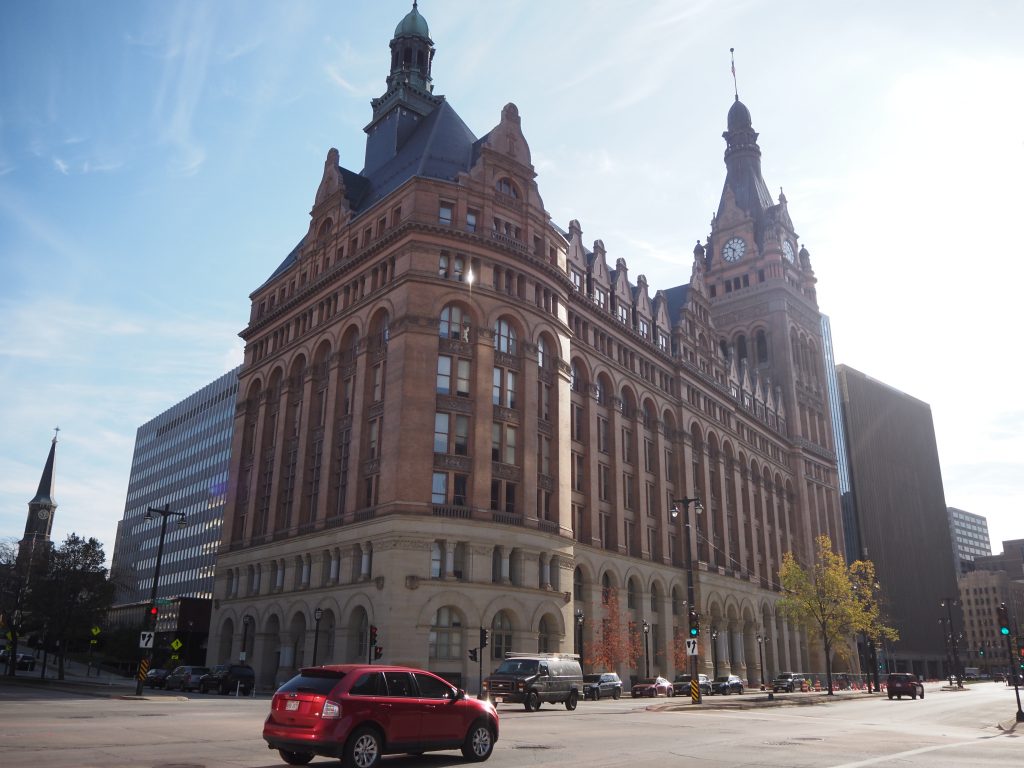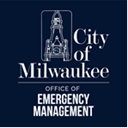What’s In The 18 Footnotes Added To Milwaukee’s Budget?
See Common Council members' ideas to make city government better serve the public.
“Budgets are moral documents.”
And you can figure out a lot of the City of Milwaukee’s morals by looking at where the money flows in its $2 billion annual budget.
But buried between lines that fund the library system or levy a street lighting fee are more than a dozen footnotes with no dollar amount attached.
The Milwaukee Common Council, which finalized the 2025 budget in late November, routinely marks up the mayor’s proposal with several amendments, shifting funding from one priority to another. However, it also includes many non-fiscal policy proposals.
As has been the case for several years, Alderwoman Milele A. Coggs was the most prolific filer of footnotes.
Her desires to improve the city are expressed in explicit requests to departments. Among other changes, past footnotes have led to the development of the Healing Spaces Initiative, which turns vacant lots into pocket parks, and measures that expanded trauma-informed care for the city’s public safety personnel.
The footnotes require follow-up action to formally enact the request, and much of that work is already starting during the council’s committee process.
And while footnotes don’t always lead to new city policies for a variety of reasons, they do offer good insight into what council members are thinking.
1. Direct the Innovation Director to Semiannually Report to the Common Council
The first footnote is a simple one. Sponsored by Coggs, the request calls for Innovation Director Jim Bohl, a former council member, to regularly report to the council on his efforts. The position was created in the last budget cycle to attempt to unlock $300 million in state funding set aside for collaborating municipalities and to explore other opportunities to modify city operations.
“We want to know what the position does,” said Coggs at the Oct. 31 budget amendment meeting.
2. Direct the Budget and Management Division and Comptroller’s Office to report fund balances
A second straightforward Coggs footnote. The city has several buckets of money that are often the subject of questions regarding how much is left or what was actually spent. The request calls for reporting those balances outside of the budget cycle.
3. Direct the Budget and Management Division and Comptroller’s Office to report positions vacant at the start of the year, financial savings and how the savings were used
Until recently, many city departments were beset by understaffing caused by stagnate wages and a tight labor market. Labor studies have raised pay rates for many jobs, filling several open positions, but exact details were the subject of much debate and amendments, during the budget process. Sponsored by Coggs.
4. Direct the city’s IT department to explore additional ways to use its e-text system
You can get a text message when there’s a snow emergency. But there are a number of city services for which getting a text message isn’t an option. Coggs’ footnote directs the Information Technology Management Division (ITMD) to work with other departments to increase the use of the technology.
5. Direct the Office of Community Wellness and Safety (formerly Office of Violence Prevention) to determine what resources are needed for COP House and Community Hub programs
The city has struggled to establish public hubs where police officers could perform administrative tasks and those needing services could come for support. Modeled after successful efforts in other cities, several budgets have included seed funding for COP House efforts, only to see the measures delayed or imperiled by operational challenges. Coggs’ footnote seeks a formal report.
6. Request the Department of City Development (DCD) to prepare a report on which BIDs and NIDs use the most Milwaukee Police Department (MPD) resources
The city’s business and neighborhood improvement districts host several events that require public safety resources, but the scale of the organizations and the support needs vary dramatically.
The issue already came to a head in the Zoning, Neighborhoods & Development Committee on Tuesday with city officials debating it and footnote 10.
The first footnote not authored by Coggs, with Ald. Mark Chambers, Jr. leading the request.
7. Request Fire & Police Commission (FPC) to study if it should hire a social media consultant
The city has been plagued by an inability to hire new police officers though it has the funding to do so. Ald. Scott Spiker introduced this footnote to get a formal determination if a dedicated consultant could improve the commission’s outreach.
He told the committee on Oct. 31 that his goal was to determine if an actual expert versus relying on the “young people” at the commission would make a difference.
8. Direct the FPC to create a long-term recruitment plan
A Coggs amendment that dovetails with Spiker’s amendment and other . FPC Executive Director Leon W. Todd, III said during a recent committee meeting that his office is already working on enhancing its processes, but Coggs said it feels the city’s efforts are “sinking.”
9. Have MPDconduct victim surveys of families regarding their experience with provided resources
A Coggs amendment that builds on a multi-year theme: provide better support for those that were victims of crime.
Unlike general city departments, the council faces more challenges in directing a public safety department to do something. The chief directs policy for the department; a structure that was enhanced by the sales-tax-enabling Act 12.
10. Explore making MPD’s Code RED a citywide program
Not a Mountain Dew variant, Code RED (Responsible Entertainment Deployment) is an MPD policing initiative that provides extra funding to increase staffing in the city’s entertainment districts. Extra officers can be seen stationed on N. Water Street during late night hours.
Coggs and Chambers would like to see the strategy expanded city wide.
11. Request MPD increase the number of community liaison officers assigned to LGBTQ community from two part-time workers to two full-time workers.
Ald. Peter Burgelis, an openly gay council member, is championing the proposal as a way to provide better services to the city’s LGBTQ+ residents.
“Having community liaison officers has been nice, but it hasn’t been as effective as full-time [officers] could be,” said Burgelis.
12. Direct the Board of Zoning Appeals to better utilize e-notify system to provide public information
A request by Alderwoman Coggs to provide more information to engaged residents. Individuals that are signed up for the city’s email notification system, e-notify, would be able to see more notifications on pending Board of Zoning Appeals actions, which includes everything from new treatment clinics to taller-than-allowed fences.
Another process is already underway to increase the mandatory notification distance so that more people are notified of proposed changes.
13. Direct the Department of Public Works (DPW) to study the creation of a dedicated sidewalk replacement crew
The 2025 budget includes $1.9 million in planned sidewalk repair and replacement funding, but virtually everyone agrees that’s not enough to put the entire system in a state of good repair.
The footnote, led by Coggs, calls for DPW to augment contractors with a dedicated team of personnel that would deal with scattered site issues like tree roots uprooting pieces. Co-sponsored by Pratt, Chambers, Moore, Stamper and Zamarripa.
“We have already been working on it and we look forward to continuing discussions,” said City Engineer Kevin Muhs on Oct. 31.
14. Direct DPW to create a promotional campaign for bicycling
Ald. Coggs would like to see the city promote use of all of the safe streets infrastructure its building, including protected bike lanes. City Engineer Muhs, at a Public Works Committee meeting last week, said the city is working on the effort. Private partners are expected to be included.
15. Direct DPW to explore creating a third Drop-Off Center
A Mark Chambers initiated footnote, though some study was already completed before he joined the council in 2022.
The existing drop-off facilities are located at 3879 W. Lincoln Ave. on the south side and 6600 N. Industrial Rd. on the far northwest side. A third, central city site is seen by many as a potential way to reduce illegal dumping. But it could come at a great cost. The 2021 estimate called for a $10.85 million facility, at minimum.
“We are supportive,” said DPW Commissioner Jerrel Kruschke.
16. Direct DPW to expand demand-based pricing for street parking
Market-based pricing for street parking has been approved since 2018, but DPW has only used the concept around Fiserv Forum. Parking rates rise during events. Ald. Burgelis would like to see the department go further and noted that the on-street rates are still far less than the increase on private lots and garages.
His footnote suggests exploring demand-based pricing near Henry Maier Festival Park and Baird Center for starters. DPW already plans to issue more parking tickets in 2025.
17. Instruct all departments to assess the feasibility of including their resources and reporting on the Milwaukee Mobile Action smartphone app.
You can report a pothole on Milwaukee’s mobile application, but you can’t set up a health department visit and reporting illegal dumping can be a frustrating experience. Ald. Coggs is instructing all departments to explore ways with ITMD to better utilize the app.
18. Instruct all departments to examine opportunities to offer more internships or apprenticeships.
There are a number of internships at city departments, and the Earn & Learn program provides opportunities for youth to get work experience, but Coggs is calling for departments to explore even more ways for young people to be able to engage with the city.
NOTE: The article does not list cosponsors that were added during the budget adoption process. Virtually every footnote attracted several cosponsors, often from the Finance & Personnel Committee.
If you think stories like this are important, become a member of Urban Milwaukee and help support real, independent journalism. Plus you get some cool added benefits.
More about the 2025 City of Milwaukee budget
- Milwaukee Creates Economic Hardship Waiver For Keeping Chickens - Nick Rommel - Dec 27th, 2024
- What’s In The 18 Footnotes Added To Milwaukee’s Budget? - Jeramey Jannene - Dec 12th, 2024
- Council Rejects Mayor’s Vetoes, Finalizes 2025 Budget - Jeramey Jannene - Nov 26th, 2024
- City Hall: Mayor Johnson Issues Several Budget Vetoes - Jeramey Jannene - Nov 20th, 2024
- Milwaukee Fire Department Announces New Organizational Changes and Personnel Enhancements in Response to 2025 Budget - Ald. Peter Burgelis - Nov 18th, 2024
- Council Boosts Road Repair In Adopting 2025 Milwaukee Budget - Jeramey Jannene - Nov 8th, 2024
- Council adopts Ald. Burgelis Amendment to Address Decades-Long Underfunding of Local Roads - Ald. Peter Burgelis - Nov 8th, 2024
- Budget amendment adopted to bolster sworn personnel recruitment efforts - Ald. Peter Burgelis - Nov 8th, 2024
- Common Council adopts amended 2025 City budget - Ald. Marina Dimitrijevic - Nov 8th, 2024
- Alderwoman Coggs sponsors budget amendments aimed at improving services, supporting residents - Ald. Milele Coggs - Nov 8th, 2024
Read more about 2025 City of Milwaukee budget here
Political Contributions Tracker
Displaying political contributions between people mentioned in this story. Learn more.





















